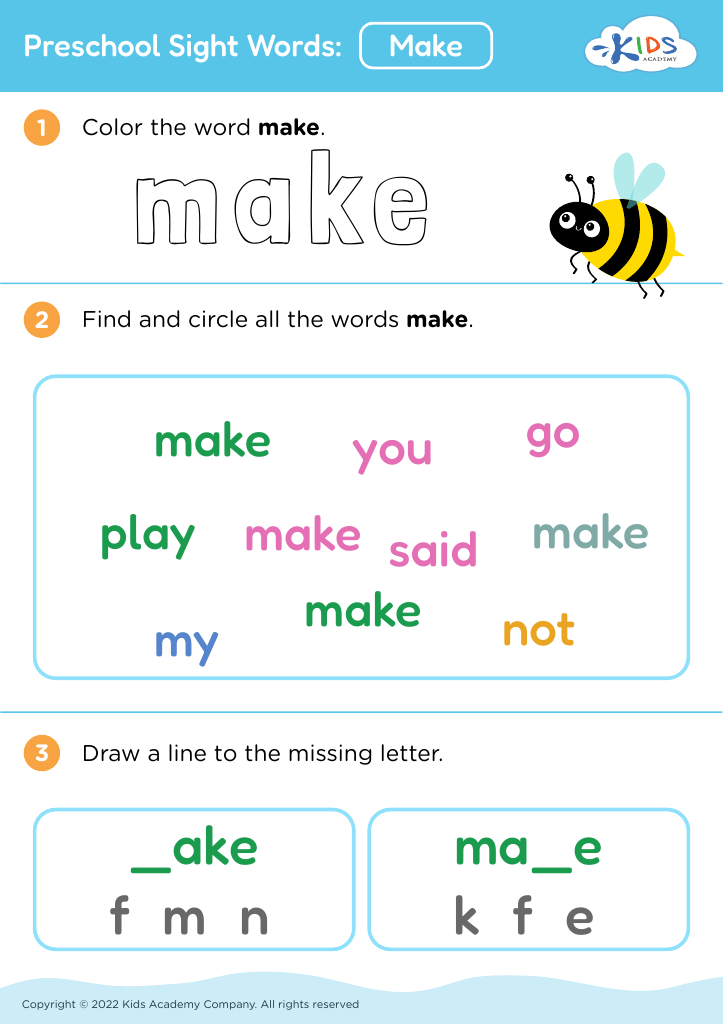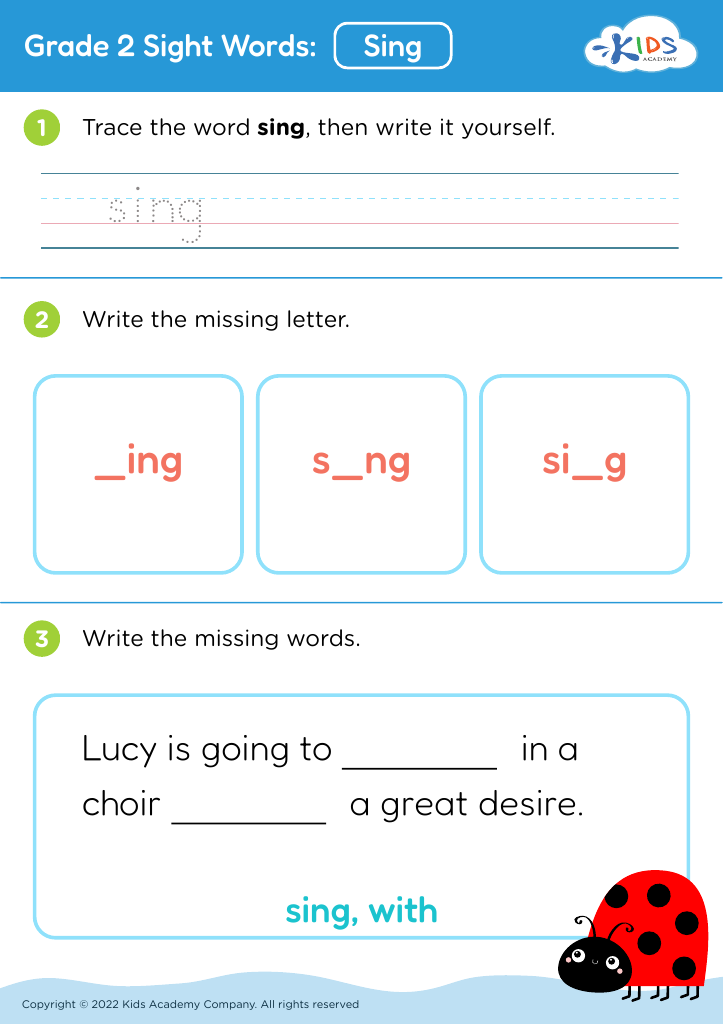Building Vocabulary Worksheets for Ages 5-7 - Page 17
389 filtered results
-
From - To
Building vocabulary for children aged 5-7 is crucial for their cognitive and linguistic development. During these formative years, children are rapidly acquiring language skills that form the foundation for their future communication, reading, and writing abilities. A robust vocabulary enhances reading comprehension, enabling children to understand and engage with various texts more effectively.
Moreover, a rich vocabulary helps children express their thoughts and feelings more clearly, improving their verbal skills and confidence in social interactions. This age group is immensely curious; introducing new words can satiate their thirst for knowledge and stimulate critical thinking. By activating their imaginations and curiosity, vocabulary building encourages children to ask questions and engage more with the world around them.
Additionally, early vocabulary development is linked to academic success. Vocabulary is a predictor of future literacy skills, and children with a larger vocabulary at a young age are more likely to excel in school. For parents and teachers, focusing on vocabulary development not only aids language acquisition but also fosters a lifelong love of learning. Engaging children in fun, interactive language activities can promote a positive educational experience, setting them on a path toward future success.





















.jpg)













